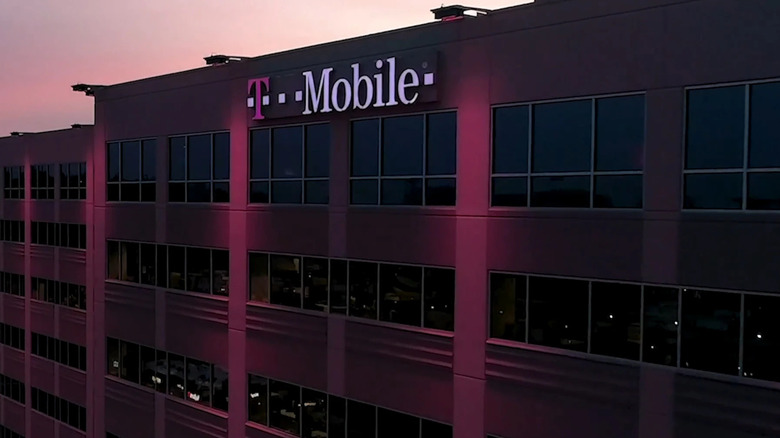T-Mobile Is Planning Major Changes That Could Leave Customers In The Lurch
T-Mobile is one of the largest cell phone companies in the U.S., with more than 132 million subscribers as of 2025. The company built its brand on upfront pricing and flexible agreements that don't require a long-term contract, and it has a five-year price guarantee on new plans. T-Mobile also offers faster 5G wireless speeds than Verizon or AT&T, and in 2024, a study by Opensignal found that T-Mobile offers better customer satisfaction than the other big two.
T-Mobile's current success is due in part to its acquisition of Sprint in 2020, which gave it a massive leap forward in terms of 5G towers and better 5G access for its rural customers. That deal shrank the pool of major cell carriers in the U.S. from four to three, however, leaving some worried that a lack of competition could lead to bad news for consumers. Thus far, that hasn't played out, but that could be about to change.
Mike Sievert has held the reins at the mobile company since 2020, but on November 1, 2025, he will take on the new role of vice chair and Srini Gopalan, currently chief operating officer, will replace him as CEO. The change was announced in September, and soon after memos leaked that indicate several changes that may upset some T-Mobile customers, including a suspension of its LTE services.
What may change, and how it could affect you
If you're a current T-Mobile customer, you may be concerned about what's changing and how it could affect you — and your monthly bill. The company has not verified most of the reported changes, but in October 2025 it did inform customers that starting in November, the late fee for not paying their bill on time will either go up by $3, to $10, or 5% of the past due amount, whichever is higher. A few dollars may not mean much to most consumers, but some of the other potential changes may hit harder. The carrier reportedly plans to phase out its LTE service, also called the 4G network. The current LTE services will be "reframed" into 5G, meaning that customers with devices that only work on the LTE network will be forced to upgrade.
The purported change is not happening immediately. T-Mobile will keep some LTE services through 2035, but experts expect that by 2028, LTE devices will only work in very limited areas. Customers who bought their phones in 2019 or later shouldn't have to worry, but customers with older devices like flip phones or the LG V50 ThinQ will have to purchase a new phone. The move is not entirely unexpected. Remember 2G and 3G? All three of the major cell carriers have discontinued those services, and some believe this is T-Mobile's first step in preparing for 6G, which is expected by 2030. For those with older phones, perhaps it's time to take advantage of T-Mobile's iPhone 17 deal.

